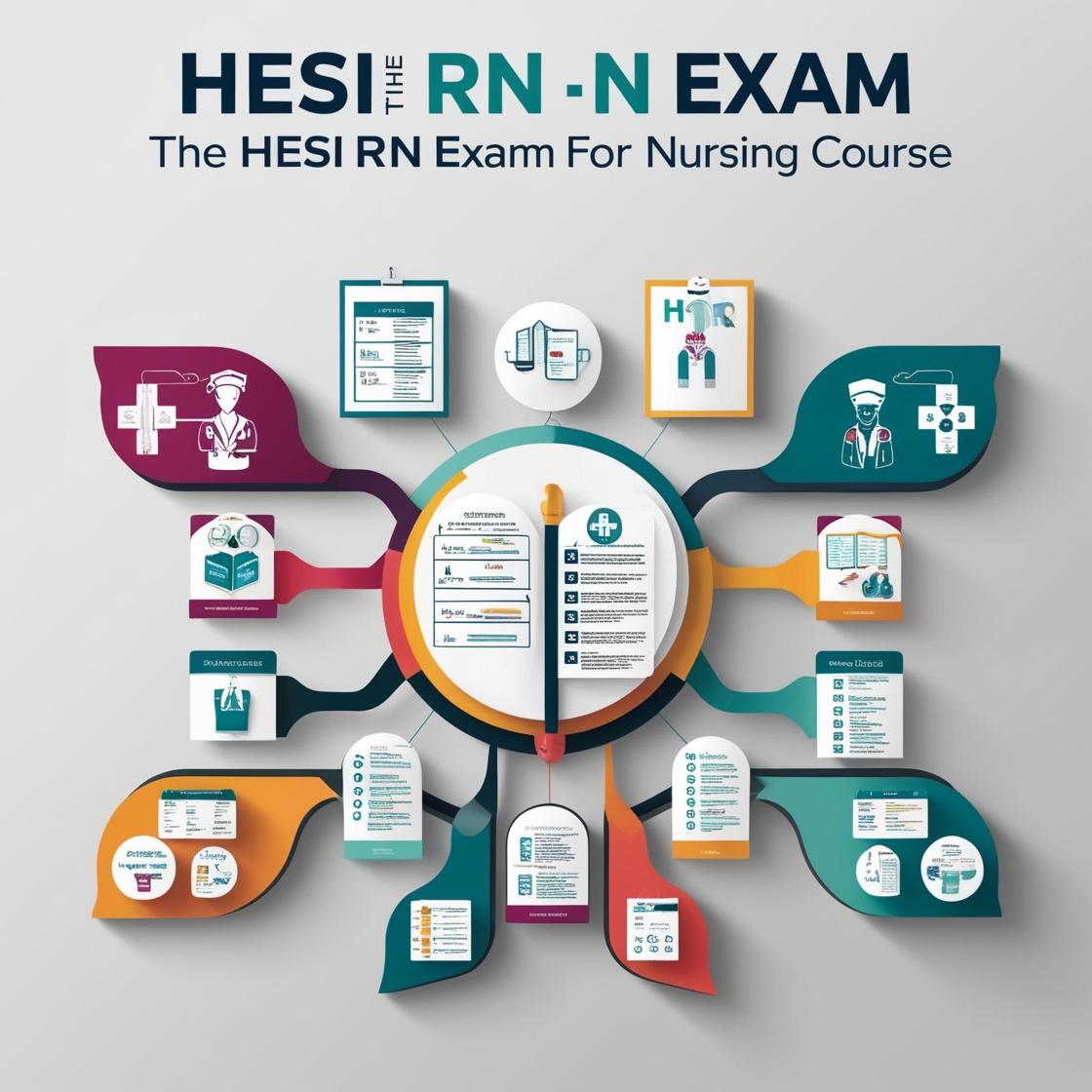HESI RN
HESI 799 RN Exit Exam Quizlet
1. The nurse is administering an IV medication to a client with a history of anaphylaxis. Which intervention is most important for the nurse to implement?
- A. Stay with the client throughout the infusion.
- B. Keep emergency resuscitation equipment at the bedside.
- C. Obtain the client's allergy history.
- D. Ask the client about past allergic reactions to medications.
Correct answer: B
Rationale: Keeping emergency resuscitation equipment at the bedside is crucial in case the client experiences anaphylaxis during the infusion. While staying with the client throughout the infusion (Choice A) is important, having immediate access to emergency equipment takes priority in this situation. Obtaining the client's allergy history (Choice C) and asking about past allergic reactions to medications (Choice D) are relevant but do not address the immediate need for emergency intervention in case of anaphylaxis.
2. A client with hyperthyroidism who has not been responsive to medications is admitted for evaluation. What action should the nurse implement?
- A. Notify the healthcare provider.
- B. Review the client's medication history.
- C. Prepare the client for thyroid function tests.
- D. Initiate seizure precautions.
Correct answer: A
Rationale: In a scenario where a client with hyperthyroidism is not responding to medications, the nurse's priority action should be to notify the healthcare provider. This is important because the client may require immediate intervention, such as adjusting the treatment plan or exploring alternative therapies. Reviewing the client's medication history (choice B) may be relevant but not as urgent as involving the healthcare provider. While preparing the client for thyroid function tests (choice C) may be necessary as part of the evaluation process, it is not the most immediate action to take. Initiating seizure precautions (choice D) is not directly related to the non-responsiveness of medications in hyperthyroidism and is not a priority in this situation.
3. A client with heart failure is prescribed furosemide (Lasix). Which assessment finding requires immediate intervention?
- A. Heart rate of 60 beats per minute
- B. Blood pressure of 100/60 mmHg
- C. Crackles in the lungs
- D. Presence of a new murmur
Correct answer: C
Rationale: The correct answer is C. Crackles in the lungs indicate fluid overload, a common issue in heart failure patients. Immediate intervention is necessary to prevent worsening heart failure symptoms and potential complications. A heart rate of 60 beats per minute and a blood pressure of 100/60 mmHg are within normal ranges for many individuals and do not typically require immediate intervention in this context. The presence of a new murmur may be important to monitor but is not the priority when crackles in the lungs suggest fluid overload.
4. The nurse is assessing a client with left-sided heart failure. Which finding requires immediate intervention?
- A. Shortness of breath
- B. Jugular venous distention
- C. Crackles in the lungs
- D. Peripheral edema
Correct answer: C
Rationale: Crackles in the lungs indicate pulmonary congestion in a client with left-sided heart failure and require immediate intervention to prevent respiratory failure. Crackles suggest fluid accumulation in the lungs, leading to impaired gas exchange and potentially respiratory distress. Shortness of breath, jugular venous distention, and peripheral edema are common manifestations of heart failure but do not directly indicate acute respiratory compromise like crackles in the lungs do.
5. The nurse is assessing a client with chronic heart failure who is receiving furosemide (Lasix). Which assessment finding is most concerning?
- A. Heart rate of 60 beats per minute
- B. Blood pressure of 110/70 mmHg
- C. Elevated liver enzymes
- D. Elevated blood glucose level
Correct answer: C
Rationale: Elevated liver enzymes are most concerning in a client with chronic heart failure as they may indicate liver congestion or worsening heart failure, requiring immediate intervention. Elevated liver enzymes can be a sign of hepatotoxicity or liver damage, which could be a result of furosemide (Lasix) use. Monitoring liver function is crucial in patients taking furosemide due to the risk of hepatotoxicity. A heart rate of 60 beats per minute and a blood pressure of 110/70 mmHg are within normal ranges for a client with chronic heart failure. An elevated blood glucose level may be expected due to the effects of furosemide but is not as immediately concerning as elevated liver enzymes.
Similar Questions

Access More Features
HESI RN Basic
$69.99/ 30 days
- 50,000 Questions with answers
- All HESI courses Coverage
- 30 days access @ $69.99
HESI RN Premium
$149.99/ 90 days
- 50,000 Questions with answers
- All HESI courses Coverage
- 30 days access @ $149.99
